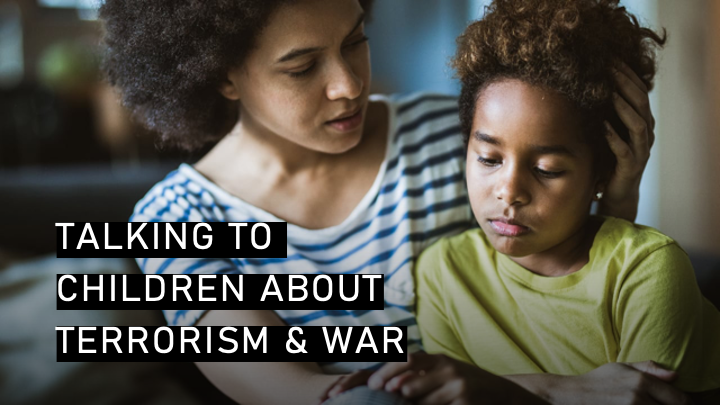Addressing the Israel–Hamas War
It has been an agonizing week as we have all, no doubt, been watching the Israel-Hamas conflict continue into its fifth day. The situation is deeply concerning, as more than 1,200 lives, including at least 22 Americans, have been lost in Israel. Furthermore, the recent attack at the Kfar Azza kibbutz involved children among the victims in this community. In addition to the tragic loss of life, an ongoing hostage crisis is happening in Gaza. This situation has placed millions of innocent civilians on both sides of the border in harm's way, intensifying the gravity of the conflict. Similar to the crisis in Ukraine, the effects are far-reaching, with images of the war being broadcast on TV and shared on social media.
We recognize that these developments are deeply distressing, and our hearts are especially with our students, staff, and families who have family, friends, and loved ones in the entire region. We denounce all terrorism and violence, and as a school community, we lead with love and understanding with the hope and goal of a more accepting world filled with humanity and equal human rights for all cultures, races, and ethnicities. We strive to make WHPS a safe space for our children to learn and grow and be proud of who they are.
What does this mean for our WHPS community?
First and foremost, we understand that everyone processes these kinds of events on their own time. At school, we have an open door policy, whether to talk about your child’s progress or to come and talk about the current state of affairs.
How do we address this topic with children?
Many of us struggle with how to talk to our children about this. How young is too young? How much or how little information should we share? And even if we’re not talking about it with our children, how do we address fears they might have? The best conversations with children about difficult subjects often involve talking less and allowing kids to ask questions. Here are some tips we ask parents and teachers to keep in mind in discussing this issue with children.
For preschool-aged children, unless they bring something up, we don’t recommend going much further than acknowledging the emotion(s) you are feeling. If your child sees or senses that you are upset, provide a simple explanation: "There are people that are upset and getting hurt, etc. It makes me really sad."
For elementary-aged children, the rule of thumb with any mature topic is to follow the child’s lead. Answer the questions they’re asking honestly and reassuringly.
Don’t shut down the conversation if they bring it up. If you avoid the topic, your child may find the event even more threatening.
Make sure you are emotionally ready to talk and understand the basic elements of what's happening in the conflict.
Correct any inaccurate information: If your child has misconceptions, correct them in a simple, age-appropriate way.
Invite your child to tell you how they feel, but avoid leading questions, such as: “Are you worried about being safe at school?”
Avoid "emotional contamination" by discussing your fears or anxiety about the future.
Reinforcing safety is important. Emphasize that this is happening far away and that home and school are safe places. Showing them the geography on a map can be helpful for older children.
If your child has access to social media, consider limiting access to TikTok and Instagram due to concerns about increasingly graphic content they may encounter.
Should you bring it up to your child?
You know your child best and how much information they can process. But we have to remember that children take in a lot more information than we often give them credit for. Especially for second/third grade and up, there can be value in having a developmentally appropriate conversation to teach them what’s going on. There is some helpful scripting in this article that can get you started.
A few resources for families and teachers:
How to talk to children about the violence in Israel and Gaza
10 Tips for parents and teachers of elementary school children in a time of war
Some tips based on children’s ages (preschool, elementary, middle school, etc.)
While our leadership team here at school may not have all the answers, we have a lot of training and experience in helping children and families navigate serious issues and emotions. I encourage families to take advantage of our open-door policy if we can provide support or even a listening ear.


